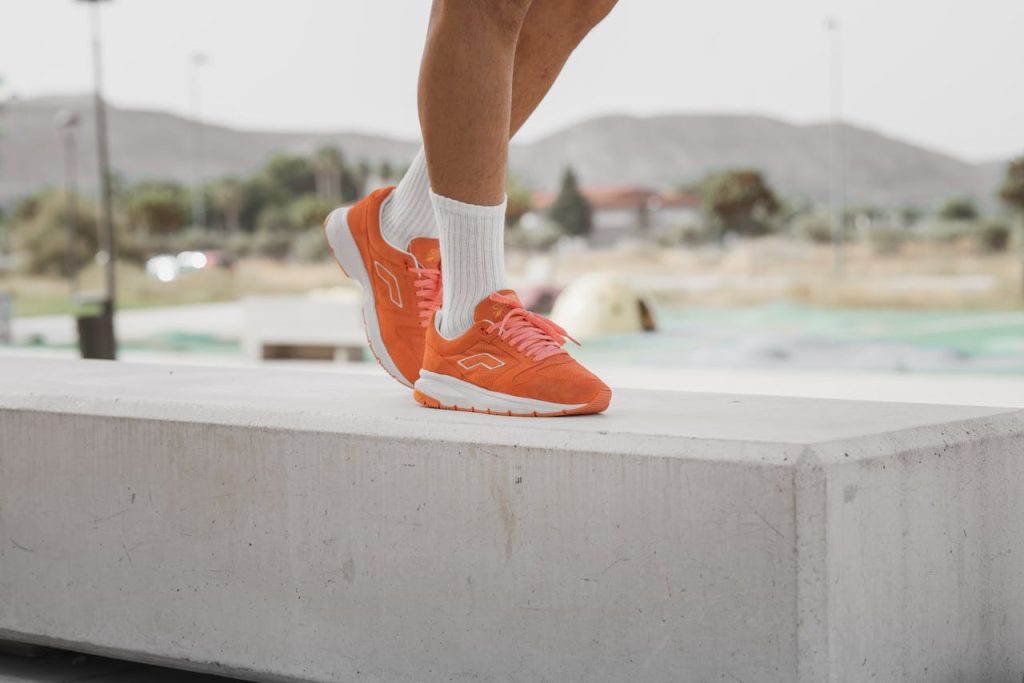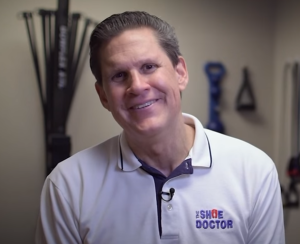Orthotics are specialized medical devices designed to provide support, alignment, and comfort to the feet. They play a vital role in addressing various biomechanical issues that can affect posture, balance, and overall musculoskeletal health. These devices range from simple over-the-counter shoe inserts to custom-made orthotics tailored to meet the unique needs of individuals. But how exactly do orthotics work, and are they necessary for everyone? In this detailed guide, we’ll explore the purpose, benefits, and considerations for orthotics to help you make an informed decision.
Understanding Orthotics
Orthotics are far more than just shoe inserts; they are precision-engineered tools aimed at correcting the body’s alignment, starting from the foundation—the feet. Biomechanical issues, such as flat feet, high arches, or overpronation (excessive inward rolling of the feet), can lead to a chain reaction of imbalances throughout the body. These imbalances often manifest as pain in the feet, ankles, knees, hips, or lower back.
Orthotics work by redistributing pressure on the feet and improving alignment. By addressing these foundational issues, orthotics help:
- Evenly Distribute Weight: Proper weight distribution reduces stress on pressure points and minimizes wear and tear on the joints.
- Enhance Stability: A well-supported foot provides a stable base, which is essential for maintaining good posture and balance.
- Correct Misalignment: Orthotics help reposition the foot into an optimal alignment, reducing strain on muscles and ligaments.
- Absorb Shock: Many orthotics are designed with cushioning materials that absorb impact, which is especially beneficial for athletes or individuals who spend long hours on their feet.
Types of Orthotics
Orthotics come in several forms, each serving a specific purpose:
1. Custom-Made Orthotics:
- Designed based on a detailed assessment of your feet, gait, and posture.
- Made from high-quality materials to address specific biomechanical problems.
- Typically prescribed by podiatrists or orthopedic specialists.
2. Over-the-Counter Inserts:
- Widely available and more affordable than custom orthotics.
- Provide basic support and cushioning but may not address severe alignment issues.
3. Functional Orthotics:
- Rigid or semi-rigid devices used to control abnormal motion.
- Ideal for individuals with overpronation, flat feet, or plantar fasciitis.
4. Accommodative Orthotics:
- Softer, more flexible devices designed to provide cushioning and reduce pressure on sensitive areas.
- Commonly used for conditions like arthritis or diabetic foot ulcers.
The Connection Between Foot Health and Posture
The feet are the foundation of the body’s entire musculoskeletal structure. When the feet are not properly aligned, the effects ripple upward, impacting posture and balance. Here’s how:
- Flat Feet (Pes Planus): This condition causes the arches to collapse, leading to overpronation. As a result, the knees and hips may rotate inward, disrupting spinal alignment.
- High Arches (Pes Cavus): Excessive arching can lead to uneven weight distribution and increased pressure on the heels and balls of the feet, affecting posture and stability.
- Unequal Leg Lengths: Even a slight discrepancy in leg length can lead to compensatory postural adjustments, resulting in chronic pain.
Orthotics address these issues by supporting the feet in a neutral position, allowing for proper alignment and reducing compensatory movements that strain the body.
Benefits of Orthotics for Posture and Balance
1. Improved Posture
Good posture begins with a strong and stable foundation. Misaligned feet can cause the entire skeletal structure to shift out of balance. This misalignment can result in:
– Forward-tilting pelvis.
– Increased curvature in the lower back (lordosis).
– Rounded shoulders or a hunched upper back.
Orthotics promote proper alignment by stabilizing the feet, enabling the body to maintain a more natural and upright posture.
2. Enhanced Balance and Stability
Orthotics improve balance by ensuring that the feet are evenly aligned and supported. This is especially beneficial for individuals with:
- Neuromuscular conditions: Such as multiple sclerosis or Parkinson’s disease, where balance is often compromised.
- Aging populations: Older adults are at a higher risk of falls due to decreased stability and weakened muscles.
- Athletes: Stability is crucial for performance and injury prevention in sports like running, basketball, and soccer.
3. Pain Relief
Foot pain often leads to altered walking or standing patterns, which can aggravate pain in other areas of the body. By addressing the root cause, orthotics can alleviate:
- Plantar fasciitis.
- Achilles tendinitis.
- Shin splints.
- Knee pain and runner’s knee.
4. Injury Prevention
Proper alignment reduces the risk of injuries caused by overuse or improper gait mechanics. For athletes, orthotics can minimize the risk of sprains, stress fractures, and tendonitis.

Who Can Benefit from Orthotics?
Orthotics are not one-size-fits-all solutions. Here are some common groups who may benefit from these devices:
1. Individuals with Foot Problems
Conditions such as flat feet, high arches, bunions, hammertoes, and plantar fasciitis often respond well to orthotic treatment.
2. Athletes
Sports activities place significant stress on the feet and joints. Orthotics can enhance performance, improve endurance, and reduce the risk of injury.
3. Older Adults
Aging leads to natural wear and tear on the feet and joints. Orthotics provide support, cushioning, and stability to reduce discomfort and improve mobility.
4. People with Chronic Pain
Orthotics can help alleviate pain in the lower back, hips, knees, and ankles by addressing biomechanical imbalances.
5. Diabetic Patients
For individuals with diabetes, custom orthotics can prevent foot ulcers and other complications by reducing pressure on vulnerable areas.
Do You Really Need Orthotics?
The need for orthotics depends on your specific situation. Some signs that you might benefit from orthotics include:
- Persistent foot pain or discomfort.
- Uneven shoe wear patterns indicating improper weight distribution.
- Frequent injuries or overuse issues, such as shin splints or stress fractures.
- Diagnosed conditions like plantar fasciitis, arthritis, or bunions.
Consultation with a Professional: Before investing in orthotics, it’s essential to consult with a healthcare professional, such as a podiatrist, orthopedic specialist, or physical therapist. They will conduct a thorough assessment, including:
- Gait Analysis: Observing how you walk to identify abnormalities.
- Foot Pressure Testing: Measuring pressure distribution across the foot.
- Physical Examination: Checking for structural deformities or tenderness.
Custom Orthotics vs. Over-the-Counter Inserts
When deciding between custom orthotics and store-bought insoles, consider the following:
Custom Orthotics
- Tailored to your specific needs.
- More effective for severe biomechanical issues.
- Longer lifespan but higher cost.
Over-the-Counter Inserts
- Affordable and accessible.
- Suitable for mild discomfort or temporary use.
- Limited ability to address complex issues.
Conclusion
Orthotics are a powerful tool for improving posture, balance, and overall quality of life. However, they are not a universal solution. Their effectiveness depends on accurate diagnosis, proper fitting, and consistent use. If you suspect you could benefit from orthotics, consult a qualified healthcare professional to determine the best course of action.
By addressing foundational issues in the feet, orthotics can alleviate pain, enhance stability, and promote better alignment throughout the body. With the right approach, they can help you move more comfortably and confidently every day.
Unleash the Power of Orthotics for Posture and Balance: Transform the Way You Move!
Don’t let poor posture or balance issues hold you back from living your best life! Whether you’re noticing the first signs of discomfort or want to enhance your stability and alignment, it’s time to give your feet and body the support they need. Say goodbye to aches and fatigue and take a confident step toward improved posture and balance. Prioritize your overall well-being with custom orthotics designed just for you.
The Shoe Doctor has been a trusted expert in crafting custom orthotics for over two decades. Experience the transformative power of personalized orthotic insoles as they enhance your posture, improve balance, and alleviate discomfort from your feet to your lower back. Russell, our knowledgeable specialist at The Shoe Doctor, will guide you through the process, offering expert advice to help you find the perfect solution for your unique needs.
We go the extra mile to create a detailed 3D map of your feet, allowing us to design custom orthotics that fit seamlessly—whether for work, casual wear, or active pursuits. With our expert guidance and premium orthotics, you’ll be stepping confidently and standing tall in no time.
Are you in the San Francisco Bay Area? Look no further! The Shoe Doctor is your go-to destination for the finest custom orthotics to support your posture and balance. We’re here to help you every step of the way, so why wait? Schedule your free consultation today and discover the unparalleled comfort and benefits of our custom orthotic solutions. Your body will thank you!
Disclaimer
The materials available on this website are for informational and entertainment purposes only and not for the purpose of providing medical advice. You should contact your doctor to obtain advice with respect to any particular issue or problem. You should not act or refrain from acting on the basis of any content included in this site without seeking medical or other professional advice. The information presented on this website may not reflect the most current medical developments. No action should be taken in reliance on the information contained on this website and we disclaim all liability in respect to actions taken or not taken based on any or all of the contents of this site to the fullest extent permitted by law.


